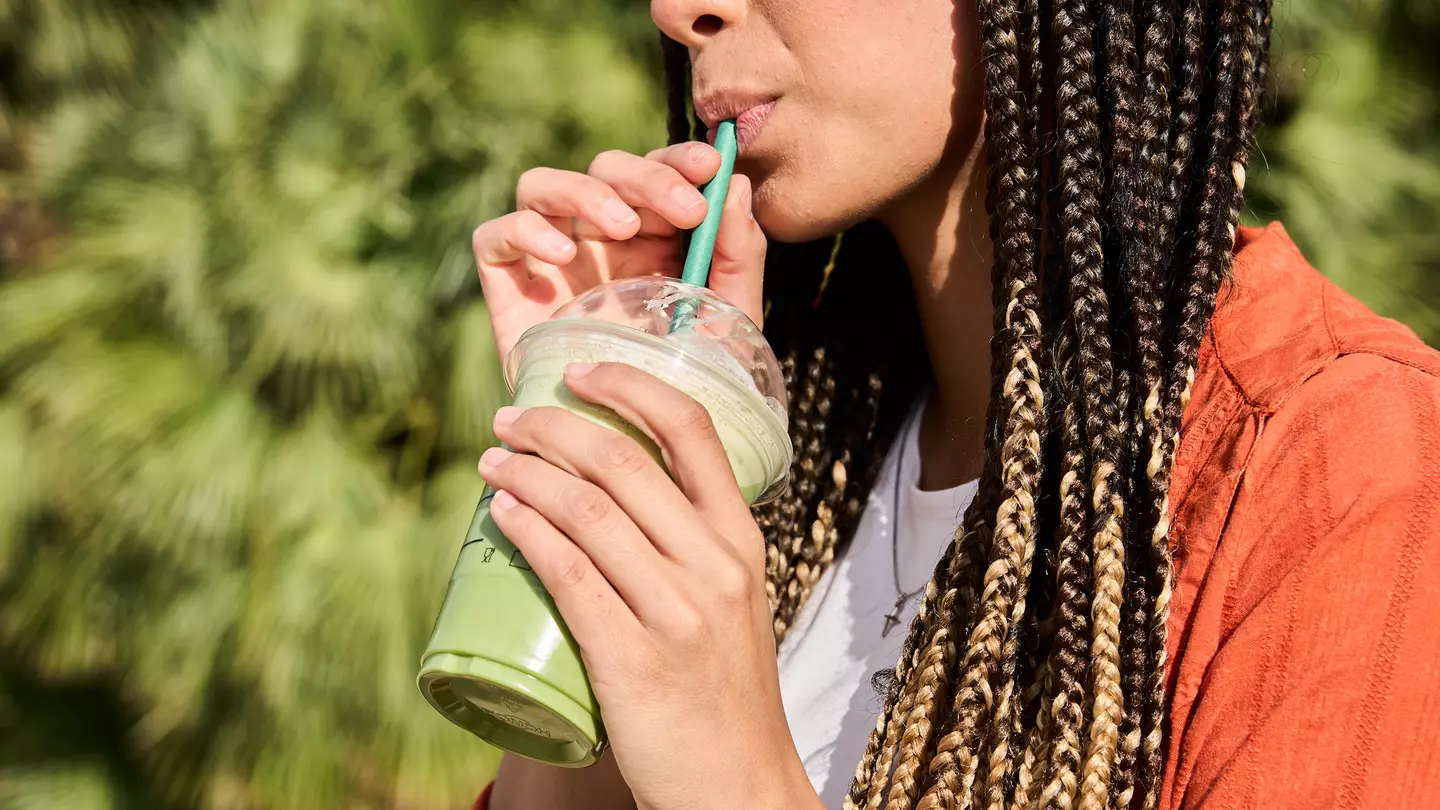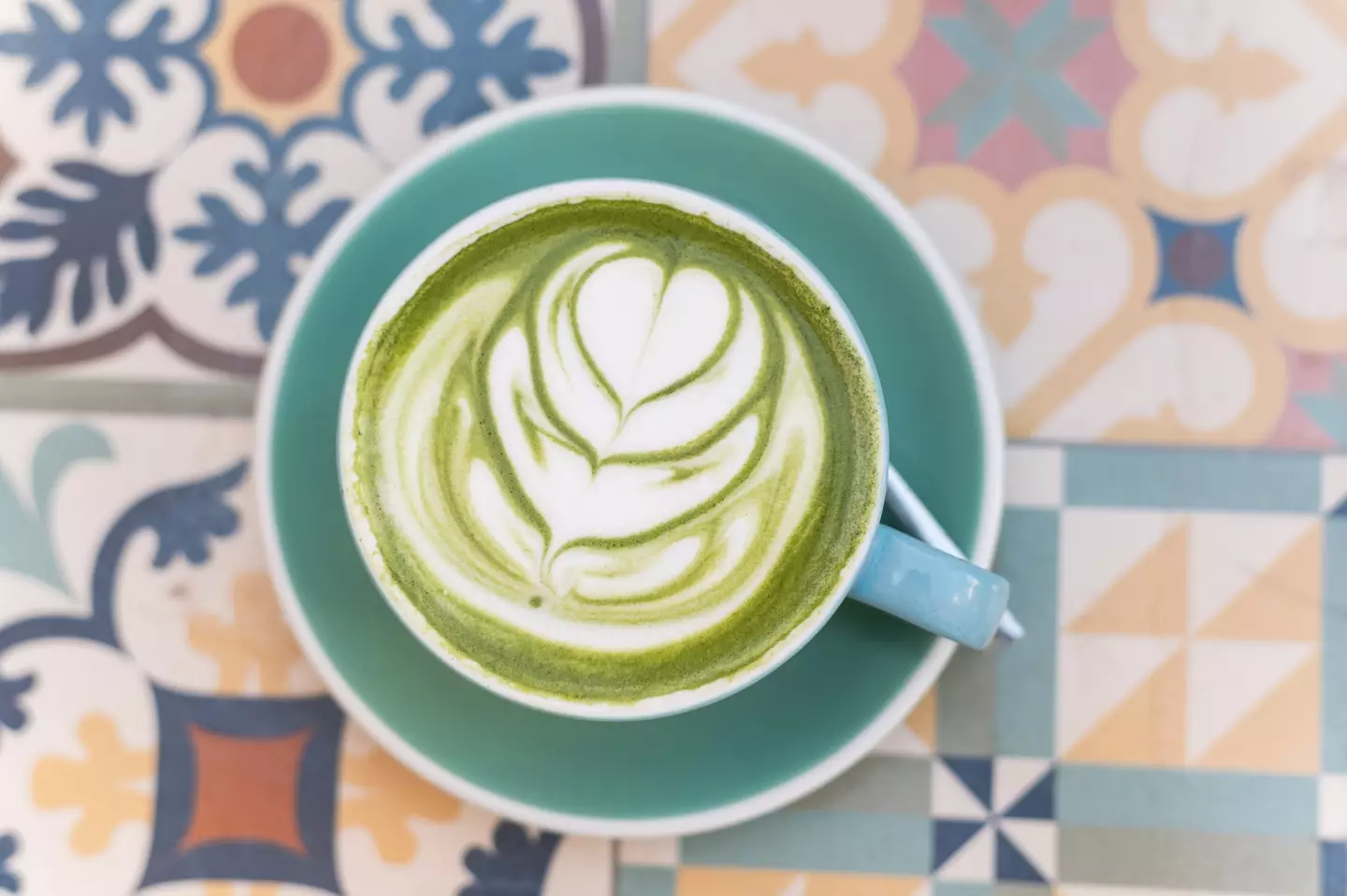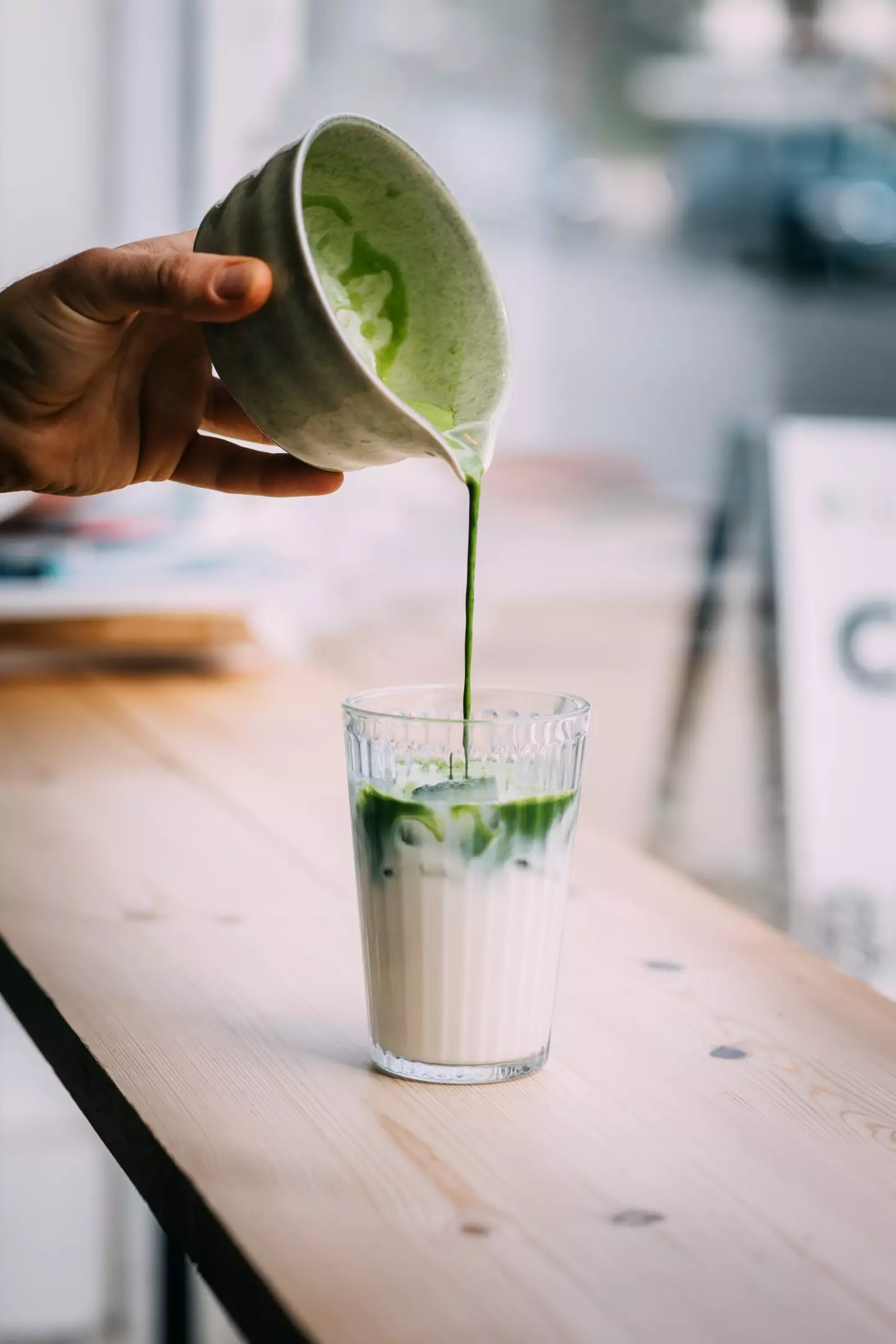
A doctor has addressed a horde of complaints from matcha drinkers, who claim to have been suffering with one particularly stressful side effect since incorporating the caffeinated beverage into their diet.
Made from the finely ground powder of green tea, and specially processed from shade-grown tea leaves, matcha has a number of known health-related benefits.
Not only is it high in antioxidant levels - and as such, increasing alertness and improving brain function -, but it's also known for protecting the liver, reducing both inflammation and cholesterol, and looking after the skin (via Healthline).
That said, however, vast quantities of consumers are said to be affected by a particular downside to the popular drink known as 'matcha mouth'.
Advert
Taking to Reddit recently, one fan explained: "I've drank a lot of loose leaf tea in my day but I've been starting to drink matcha lately. I notice EVERY time I drink matcha my mouth/throat area starts to feel dry."

They went on to ask: "Does matcha have a lot more tannins in it compared to loose tea and that's what is causing the astringency?"
Another agreed, adding: "I always drink it cold or room temperature and I find it extremely drying to my mouth and throat."
What is 'matcha mouth'?
If you've experienced the same, not to worry; a medic has since attempted to shed light on why dryness and dehydration are such prevalent amongst Matcha drinkers, as opposed to other hot and iced drinks fans.
Speaking to Tyla this week, Dr Suzanne Wylie, who works as a GP and medical adviser for IQdoctor, said: "Patients sometimes report that drinking matcha leaves their mouth feeling unusually dry, and it is understandable that this might be mistaken for dehydration."
She added, however, that, in reality, there's a reason for this sensation.
"It is best explained by the astringent qualities of Matcha," Dr Wylie continued. "The powdered green tea is particularly rich in polyphenols, such as tannins, which interact with proteins in the saliva.
"When this binding occurs, the saliva temporarily loses some of its lubricating effect, which produces that characteristic dry or puckered sensation."

What can you do if you get 'matcha mouth'?
Issuing advice to matcha drinkers, the healthcare professional firstly went on to reassure them that dryness is a 'sensory experience', as opposed to 'an indicator of true dehydration'.
"For those who find the dryness unpleasant, practical steps can be suggested," Dr Wylie went on. "Making matcha with water or following it with a drink of plain water can dilute the astringent compounds and reduce their impact.
"Preparing matcha with milk or a milk alternative may also soften the effect, as proteins in milk bind some of the tannins before they can affect the mouth."
Is 'matcha mouth' dangerous?
Asked whether she has any concerns with regards to the surge in matcha popularity going forward, the doctor continued: "From a medical perspective, this is a benign phenomenon and does not raise any concerns about oral or systemic health.

"However, if patients are experiencing persistent dry mouth unrelated to matcha, that may warrant further evaluation, particularly in relation to medications or underlying conditions such as diabetes or autoimmune disease."
Side effects of matcha
As well as 'matcha mouth', other consumers have spoken out on the unusual side effects they've endured after switching from coffee, one of the most common being iron deficiency anaemia.
According to Health Direct, this condition itself can lead to both tiredness and fatigue, as well as shortness of breath, dizziness or fainting, hair loss and an increased heart rate. Also occurring in many of these cases are cold hands and feet, brittle or weak nails, the inflammation of the tongue, and odd cravings.
One woman, a 28-year-old Crohn's disease sufferer from Sydney, Australia also told News.au recently that Matcha had severely worsened her body's ability to absorb iron through plants.
"With Crohn’s disease as a whole, it is harder for my body to absorb nutrients," Laura told the publication recently.

"So for me to get iron, I actually don’t eat a lot of meat because it is harder for me to digest, so I typically look at getting it from veggies such as spinach.
"Basically I was turning to plants for my iron nutrition, but the matcha was blocking it, resulting in a bad reaction on my body."
She went on to explain: "Blood tests revealed I was severely iron deficient, my doctor said it was so low, I was almost anaemic.
"I ended up needing an iron transfusion at the hospital, something I’ve only ever had once previously, before I was diagnosed with Crohn’s."
Topics: Food and Drink, Health